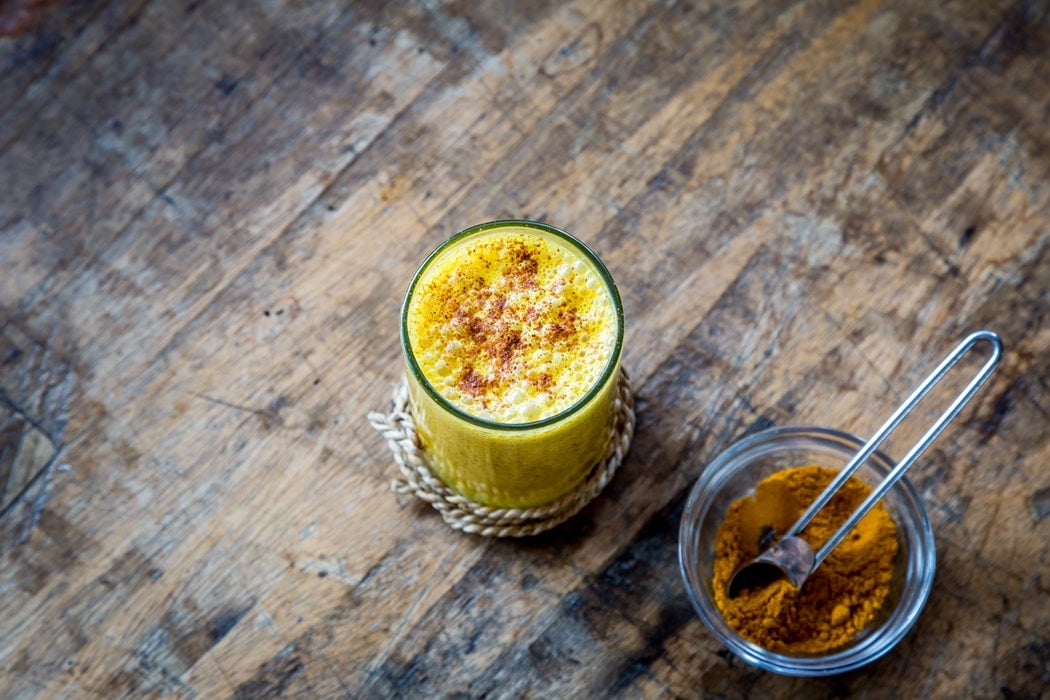
Turmeric is touted as something of a miracle spice with loads of benefits [1]. It contains antioxidants and anti-inflammatory properties, and thanks to a primary compound found in turmeric — curcumin [2] — it's also known to be a pain-reliever.
Turmeric was most commonly used in curries and golden milk [3] in places like India for centuries before it made its way into kitchens across the US. Being Indian, we grew up with this spice and ate it on a daily basis. Becoming a certified holistic nutritionist only allowed my love, understanding, and downright admiration of turmeric to grow.
Quick tip we've utilized for years: if you want to reap the most benefits from turmeric, be sure to heat it with black pepper and some sort of healthy fat (think coconut oil or ghee) for maximum potency and absorption.
There are several ways to use this spice, though. With turmeric's ever-growing popularity, it can now be found in its natural root source or in spice and supplement form — meaning there are a lot of ways to sneak it into your diet. But is it possible to have too much of a good thing?
Does Consuming Turmeric Have Any Side Effects?
There is a growing body of evidence of the many benefits of turmeric, such as antiaging properties, blood purification, improved digestion, and improved brain health, to name a few. However, there may also be negative side effects to consuming turmeric.
While negative side effects are rather rare, they are possible. For example, Amanda Barnes [5], RD, warns that "if someone is taking blood thinners or painkillers such as aspirin as well as turmeric in a concentrated form, such as a supplement capsule, you could overdo it. This could lead to increased bleeding when cut, during a menstrual period, or if you are susceptible to bloody noses."
High doses of turmeric may cause gastrointestinal problems, bloating, "nausea, vomiting, stomachaches, and diarrhea. Turmeric may also exacerbate symptoms of GERD," Dr. Amita Kundra [6] told POPSUGAR. In some cases, a highly elevated consumption of turmeric may also cause anemia and slow blood clotting.
How Much Turmeric Is Safe to Consume?
There is varying evidence regarding how much turmeric is safe to consume daily. If you believe you might be allergic to turmeric, are pregnant, are prone to bloody noses, or are on medication, then it would be best to consult with your physician to understand how much is best to consume. Generally, it would be best to consume less than 1,000 mg of turmeric a day.
What Is the Best Way to Get Your Daily Dose of Turmeric?
Sneaking it into your morning smoothie, baked or stir-fried veggies, tea, or any variety of ways is pretty easy these days. Most health stores carry turmeric in its root form, but you can also purchase it as a supplement or grab it from your grocery store's spice section. While there's technically no best way to add turmeric to your diet, "adding fresh or powder form of turmeric into recipes is a great way to consume smaller amounts," while "taking supplements will have higher doses [and] can have more of [the] anti-inflammatory effects," Barnes said. It's also important to buy powder or supplement forms of turmeric from a reputable source with no other additives to decrease your chances of negative side effects.
